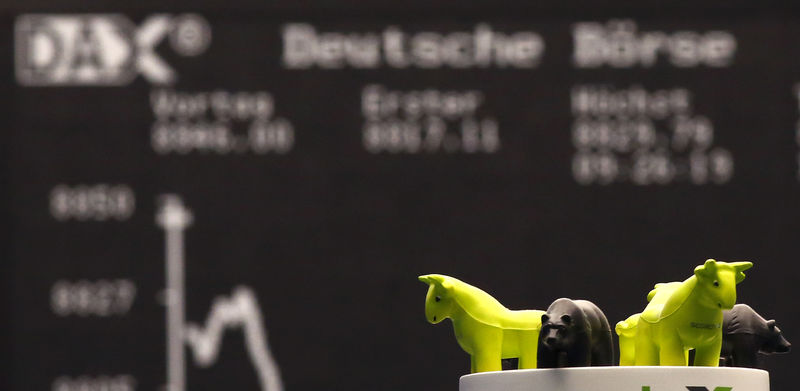By Peter Nurse
Investing.com - European stock markets edged largely lower Thursday, with investors wary ahead of the release of key U.S. inflation data as well as the continued U.K. market turmoil.
By 03:40 ET (07:40 GMT), the DAX in Germany traded 0.2% higher, but the CAC 40 in France fell 0.2% and U.K.’s FTSE 100 dropped 0.5%.
European equities followed their Asian counterparts lower as investors feared a potential shock from U.S. inflation data after the minutes from last month's Federal Reserve policy meeting showed that the policymakers appeared worried more about doing too little on inflation than too much.
U.S. inflation data due out later in the session could help the U.S. central bank decide the size of its next rate move in November, which markets are predicting to be another 0.75 percentage point increase.
Data released from Germany earlier Thursday showed that consumer inflation in the Eurozone’s dominant economy rose by 10.0% on an annual basis in September, up 1.9% on the month, increasing pressure on the European Central Bank to continue tightening monetary policy.
Elsewhere, investors also remain wary about the possibility of the Bank of England ending its emergency bond-buying program at the end of the week, which could result in more heavy selling in the U.K. gilt market, dragging the pound further lower.
In corporate news, easyJet (LON:EZJ) stock rose 0.3% after the budget airline said its operations have still improved significantly even while warning that it expects to post a third straight annual loss.
Hays (LON:HAYS) stock fell 0.6% after the recruiters flagged slower hiring activity in the U.K. and the U.S., while Taylor Wimpey (LON:TW) stock fell 4.3%, leading a broad selloff for U.K. housebuilders.
Entain (LON:ENT) stock rose 1.5% after the British gambling firm said it expected the soccer World Cup starting next month to help improve its fourth-quarter online gaming revenue.
Oil prices edged up from their weekly lows, with traders digesting a hefty build in U.S. crude inventories amid concerns of weakening global demand.
Data from the American Petroleum Institute, released on Wednesday, showed U.S. crude stocks rose by 7 million barrels last week, raising fears of sluggish demand at the world’s largest consumer. An official government reading is expected later in the session.
The Organization of Petroleum Exporting Countries cut its 2022 and 2023 oil demand forecasts on Wednesday, just a week after the group and its allies agreed to cut oil supply.
By 03:40 ET (07:40 GMT), U.S. crude futures traded 0.6% higher to $87.77 a barrel, while the Brent contract traded 0.8% higher to $93.14. Both contracts are down nearly 6% this week.
Additionally, gold futures fell 0.1% to $1,676.20/oz, while EUR/USD traded 0.1% lower at 0.9700.
